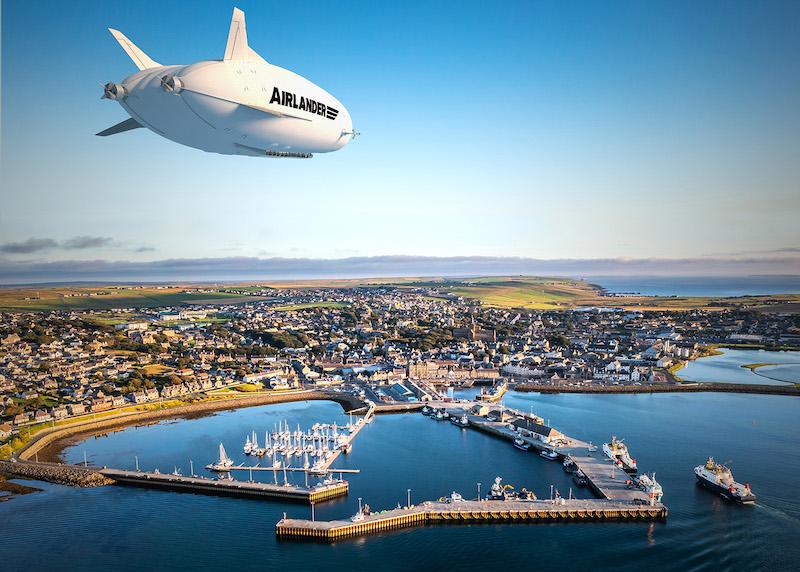
LONDON—The developer of the Airlander hybrid airship and a manufacturer of nano-uncrewed aircraft systems (UAS) are the latest signatories to work with BAE Systems’ new FalconWorks technology development house.
Hybrid Air Vehicles (HAV) and UAVTEK Limited teamed up with the FalconWorks business during the Defense Security Equipment International (DSEI) exposition held here Sept. 12-15.
The collaboration with HAV, through a memorandum of understanding, will explore the use of the Airlander aircraft in defense and security missions, a role for which the aircraft originally was designed when the prototype aircraft was first funded for the U.S. Army’s Long-Endurance Multi-Intelligence Vehicle program, which was later canceled.
HAV says the Airlander hybrid airship could provide an “alternative sustainable and cost-effective solution to air logistics and intelligence, surveillance and reconnaissance capabilities.”
“This announcement demonstrates the significant momentum that we have built behind the Airlander project, and we are looking forward to carrying that with us into the next, crucial stage of starting production of Airlander 10,” HAV CEO Tom Grundy said.
The arrangement with UAVTEK will see the two companies jointly explore UAS technologies. The companies previously worked together in December 2020 on a nano-multi-copter drone called Bug, delivering systems to the U.K. Army for experimentation.
The agreements with UAVTEK and HAV are in addition to an agreement with Qinetiq to explore further development of Qinetiq’s Jackdaw autonomous collaborative platform derivative of its Banshee target drone, as previously reported by Aerospace DAILY.
The arrangement with Qinetiq will also lead to the development of what officials describe as a common, goal-based autonomous mission management system that will be interoperable with existing and future crewed and uncrewed systems.
BAE Systems launched the FalconWorks business—part of the company’s air sector—in July, with a focus on working with partners to bring new technologies to the market.
FalconWorks is the lead in the ongoing development of the Tempest demonstrator aircraft, as well as the company’s work around electric air systems including its partnerships with Pipistrel, Malloy Aeronautics and Embraer’s Eve electric vertical-takeoff-and-landing system.
Also embedded in FalconWorks is the company’s support to Turkish Aerospace on the Kaan combat aircraft, and development of Autonomous Collaborative Platforms such as the concepts presented by the company at last year’s Royal International Air Tattoo.
It also includes what remains of BAE Systems’ regional aircraft business, supporting platforms such as the company’s Jetstream and Advanced Turboprop aircraft and the Avro family of regional jets.
Dave Holmes, managing director of FalconWorks, told DSEI delegates on Sept. 14 that FalconWorks had opened a front door to BAE Systems for small and medium-sized business that would “capitalize on the great ideas they’ve got, and find a way to accelerate the route to market.”
“We want to find the best athletes—to partner and align and form alliances with the best people wherever they may be,” Holmes added.
FalconWorks’ scope extends beyond BAE’s traditional military customers, with the aim of supporting security forces and parapublic agencies, where Holmes says there is significant crossover of technology.
